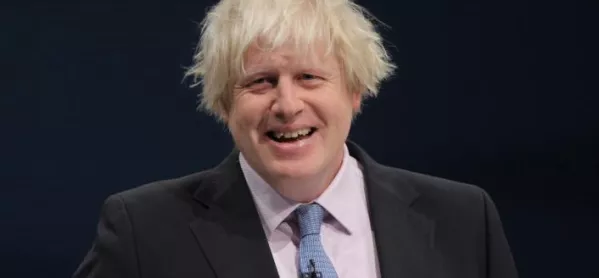Prime minister Boris Johnson has tonight announced a “£14 billion” funding package for schools, but unions are already examining the “devil in the detail.” Here are some of the unanswered questions:
Why is there no extra money for this year?
The new funding announced tonight is being made available between 2020-21 to 2022-23, but unions have stressed the need for cash to be made available “immediately.”
Geoff Barton, general secretary of Association of School and College Leaders, said: “If you are a headteacher in an academy who is having to make redundancies next week, this will not help you.
“There will be teachers and teaching assistants whose jobs may be at risk, and some of them have already lost their jobs over the summer holiday because of the pay award for teachers which wasn’t fully-funded.”
Will the cash cover the teacher pay increase?
DfE insiders have suggested that teacher pay rises would have to be funded from within the money.
However, an official spokesman for DfE told Tes that a pay grant of an extra £426 million, on top of the cash, would be available in 2020-21 to cover teacher pay increases.
What could happen if there’s a no-deal Brexit and an early general election?
“The people making these promises may not be around to deliver them,“ said Geoff Barton.
However, he also said it would be “hard for any future government to renege on them”.
“It’s a line in the sand, in a way, which is setting the bar in very clear terms as to as to what any future government ought to be spending on education,” Mr Barton said.
How will the money be distributed?
A DfE spokesperson said it would be “resetting” the National Funding Formula to “level-up funding rather than distributing between winners and losers.”
However, this could mean that deprived areas lose out.
The DfE insists that schools in deprived areas would still be the highest-funded schools in the country.
But Luke Sibieta, of the Institute of Fiscal Studies, said that the government’s decision to concentrate on raising minimum funding levels meant the extra money “would be largely targeted at local authorities with low levels of deprivation, and would reduce the extent to which funding is targeted at deprivation”.
“For example, Bracknell Forest, West Sussex, Leeds and Doncaster would all end up with primary school funding levels of £4,000 per pupil, despite the fact that the proportion of pupils eligible for free school meals in Doncaster and Leeds (close to 20 per cent) is approximately double that in Bracknell Forest and West Sussex (less than 10 per cent).”





